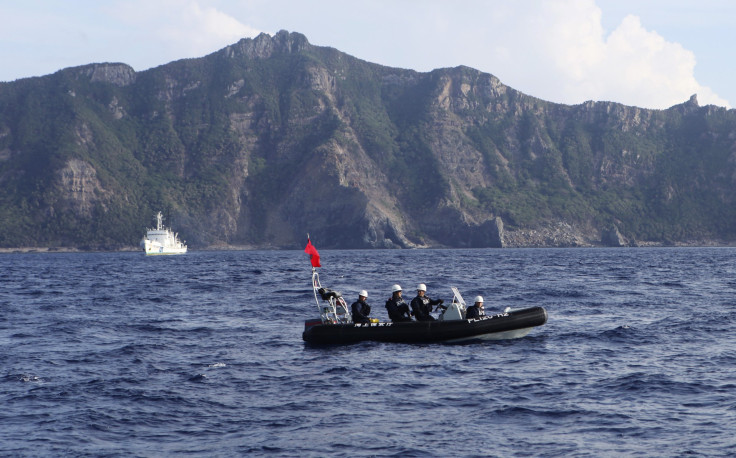East China Sea Territorial Dispute: Japan Resurfaces Protests Over China Gas Facility

Japan’s Cabinet has expressed disapproval over China’s new ambitious gas project located in the East China Sea. Japan’s Chief Cabinet Secretary Yoshihide Suga said on Monday that China’s construction of a gas field development facility encroaches on disputed territory.
“We have repeatedly protested against China’s unilateral gas development and have urged China to stop it,” Suga said according to the Japan Times. China first broke ground on the Huangyun I facility back in June 2013, becoming one of several projects that totaled $5 billion and caused a fury when it was placed near Japan’s proposed exclusive economic zone and an area of the East China Sea where claims between China and Japan overlap by some 200-miles.
Japan worries that close proximity to Japan’s exclusive economic zone, placed about 16 miles from west from the median line, means China’s natural gas project could potentially be siphoning gas from seabeds technically claimed by Japan. Japan and China’s stronghold claims in the East China Sea are related to the significant amounts of gas resources that are estimated to be in the area. The U.S. Energy Information Administration estimated in 2012 that the East China Sea had between one and two trillion cubic feet of natural gas reserves. Chinese sources estimate that number to be exponentially higher, at 250 trillion cubic feet.
China and Japan’s historic animosity has only been fueled by clashes in the past few years over the resource rich East China Sea waters that continue to threaten relations between the two. According to a report by Reuters, when Chinese gas drilling began two years ago Japan made similar remarks protesting China’s gas development so close to Japan.
“If the Chinese side is to proceed unilaterally with development in the area over which there are conflicting claims, Japan would never accept it,” Suga said at the time during a news conference. At the time, China’s foreign ministry rejected the criticism, calling it baseless and forged ahead with drilling.
© Copyright IBTimes 2024. All rights reserved.





















